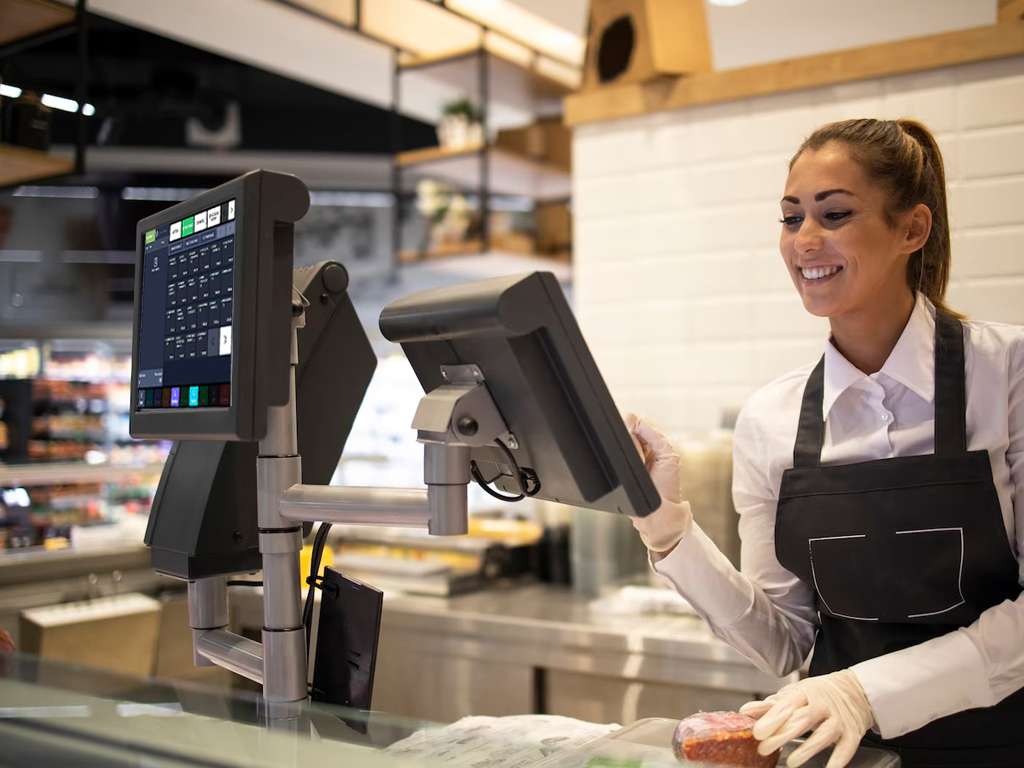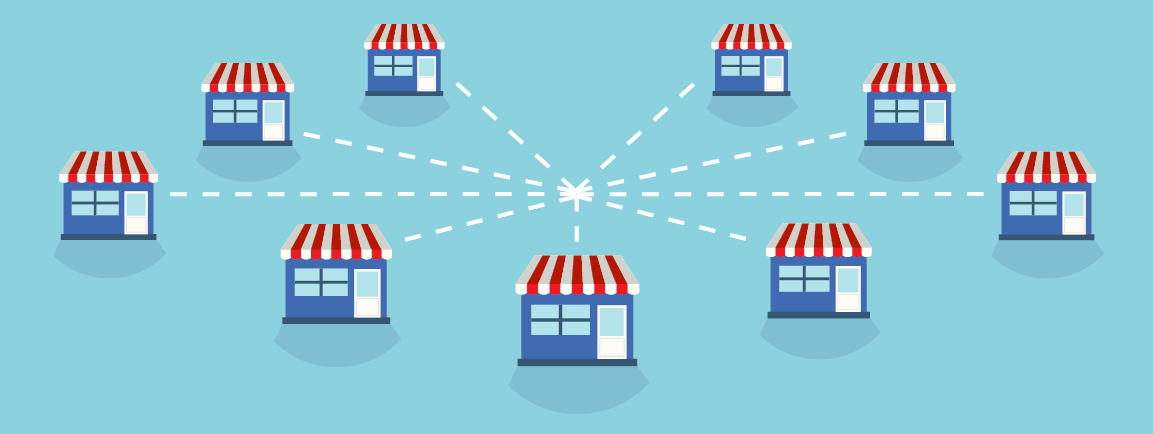In today’s fast-paced world, quick-service restaurants (QSRs) are becoming increasingly popular. These establishments serve a high volume of customers quickly and efficiently, which means that any delays or errors in the ordering process can have a significant impact on sales. This is where a POS (Point of Sale) system comes in.
By automating the ordering process and streamlining operations, a POS system can help QSRs increase sales, improve customer satisfaction, and boost profitability.
In this blog, we will explore the ways in which a POS system can benefit QSRs and increase sales, from faster ordering to data analysis.

Are you in search of the perfect POS system?
Accelerate your search with Limerr’s ideal POS system and unlock the key to planning your restaurant’s future growth.
Fast and secure services
The POS can help speed up the ordering process by allowing employees to quickly and accurately input orders and process payments. With faster and more efficient service, customers can complete their transactions more quickly, reducing wait times and improving their overall experience.
In addition, modern POS systems offer advanced security features that help protect sensitive customer information and prevent fraud, providing a more secure transaction environment. Overall, a faster and secure POS system can enhance customer satisfaction, increase efficiency, and improve business profitability.
Reduce errors and increase accuracy
With a POS system, employees can input orders directly into a touch screen interface, reducing errors caused by illegible handwriting or miscommunication. Moreover, modern POS systems can automatically calculate pricing, taxes, and discounts, minimizing errors caused by manual calculations.
By reducing errors in orders, a POS system can help ensure that customers receive the correct items they ordered. This can lead to increased customer satisfaction and loyalty, as customers are more likely to return to a QSR where they have had a positive experience. Moreover, when customers receive accurate orders, they are more likely to recommend QSR to others, leading to increased word-of-mouth advertising and attracting new customers.
Overall, a POS system can significantly improve order accuracy in QSRs, minimize errors, and enhance customer satisfaction, leading to increased sales and revenue, as well as improve brand reputation and customer loyalty.
Better inventory management
Inventory management is a crucial aspect of running a quick service restaurant (QSR). A POS system can greatly improve inventory management by providing real-time tracking of inventory levels and alerting managers when supplies are running low. This ensures that the QSR always has the necessary ingredients and supplies on hand to fulfill customer orders, preventing stockouts and delays in service.
Moreover, a POS system can help reduce waste by providing accurate sales data, enabling QSRs to make informed decisions about how much inventory to order and when to order it. This can minimize overstocking and spoilage, saving money and increasing profits for business.

Overall, a POS system can help QSRs manage their inventory more effectively, ensuring that they have the right supplies on hand while minimizing waste and maximizing profits.
5 techniques for effective restaurant inventory management.
Enhanced Upselling
Upselling is a sales technique used by businesses to encourage customers to purchase additional items or upgrade their existing orders. A quick service restaurant (QSR) POS system can enhance upselling by suggesting complementary or upgrade items to customers based on their order history.
For example, if a customer frequently orders a burger and fries, the POS system can suggest adding a drink or a dessert to their order, increasing the total order value. The POS system can display these suggestions on the order screen or suggest them verbally to the customer at the point of sale.
By suggesting Upselling items to customers, a POS system can help increase the average order value, boosting QSR’s sales and revenue. Additionally, customers may appreciate the personalized suggestions and the convenience of being offered complementary items they may have otherwise overlooked. Overall, a POS system can enhance upselling in QSRs, increasing the average order value and potentially improving customer satisfaction.
Loyalty and Feedback Program
Loyalty and feedback programs are marketing strategies used by businesses to incentivize customer loyalty and gather customer feedback. A POS system can facilitate these programs by tracking customer purchases and providing rewards and incentives for frequent customers.
With a POS system, QSRs can create loyalty programs that offer rewards, such as discounts or free items, to customers who make frequent purchases.

The POS system can track customer purchases and automatically apply the rewards when customers meet certain spending thresholds. Moreover, a POS system can help QSRs collect customer feedback by prompting customers to leave reviews or ratings after their purchases.
By implementing loyalty and feedback programs through a POS system, QSRs can increase customer retention and encourage repeat business. Customers who receive rewards or incentives for their loyalty are more likely to return to QSR, potentially increasing sales and revenue. Additionally, gathering customer feedback can help QSRs improve their products and services, leading to higher customer satisfaction and loyalty.
Overall, a POS system can facilitate loyalty and feedback programs in QSRs, providing a convenient and effective way to incentivize customer loyalty and gather valuable feedback.
Customer Data insights
A POS system can greatly facilitate data analysis for quick service restaurants (QSRs) by collecting and organizing data on various aspects of the business, such as sales, customer preferences, and inventory levels.
By analyzing this data, QSRs can identify trends and patterns that can inform business decisions and help increase sales and profitability. For example, a QSR may use data analysis to identify which menu items are the most popular among customers or which promotions are the most effective in driving sales. They can then use this information to make data-driven decisions about menu planning, promotions, and other aspects of the business.
Moreover, a POS system can generate reports and visualizations that make it easy for QSRs to analyze and interpret their data. These reports can provide valuable insights into sales trends, inventory levels, and customer behavior, among other metrics.
Conclusion
In today’s fast-paced business environment, it is essential for QSRs to leverage technology to stay competitive and meet the evolving needs of their customers. A POS system is a powerful tool that can help QSRs achieve these goals, providing a platform for streamlined operations, improved customer experiences, and data-driven decision-making.
By streamlining operations and improving the customer experience, QSRs can increase customer satisfaction, drive repeat business, and ultimately increase sales and revenue. Additionally, by collecting and analyzing data, QSRs can make informed decisions about menu planning, promotions, and other aspects of the business, leading to increased profitability and growth.





